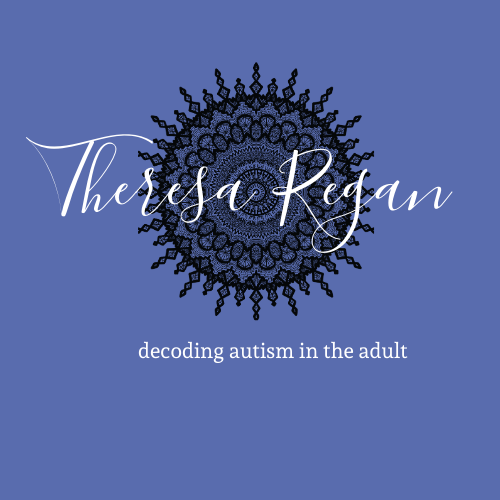Recovering from Dysregulation on the Autism Spectrum
Description
Join Dr. Regan for the third episode of a four part series on regulation and dysregulation on the autism spectrum. This episode focuses on strategies for recovering from dysregulated states.
As referenced in the podcast:
Exhaustion in Autism: Balancing Momentum for Daily Activities
Gaining Momentum for Activities: Shifting from Sluggish to Active
Keeping Momentum for Activities on the Autism Spectrum
Dr. Regan's Resources
Book: Understanding Autism in Adults and Aging Adults, 2nd ed
Audiobook
Book: Understanding Autistic Behaviors
Autism in the Adult website
Resources for Clinicians
Transcript of Episode
1
00:00:03,540 --> 00:00:07,840
Hello everyone and welcome to this episode of the podcast,
2
00:00:07,850 --> 00:00:09,680
autism in the adult,
3
00:00:09,690 --> 00:00:10,910
I am your host,
4
00:00:10,910 --> 00:00:12,450
Dr Theresa Regan.
5
00:00:13,040 --> 00:00:14,870
I am a neuropsychologist,
6
00:00:14,870 --> 00:00:20,640
which means that I specialize in understanding how the brain impacts things like thinking,
7
00:00:20,640 --> 00:00:21,320
skills,
8
00:00:21,330 --> 00:00:22,410
emotions,
9
00:00:22,420 --> 00:00:24,560
behavior and personality.
10
00:00:25,160 --> 00:00:30,460
I'm the founder and director of an adult diagnostic autism clinic in central Illinois.
11
00:00:30,840 --> 00:00:40,560
And today we have the third episode in a series of four on the topic of regulation and dysregulation on the autism spectrum.
12
00:00:41,440 --> 00:00:42,960
In the first episode,
13
00:00:42,960 --> 00:00:51,080
we defined these terms where regulation is feeling just right in the area of alertness,
14
00:00:51,090 --> 00:01:03,630
attention and calm, and dysegulation is feeling too high or too low in these areas and when someone is not feeling centered with their emotions,
15
00:01:03,630 --> 00:01:11,960
they might have a fight, flight, or freeze reaction, and the freeze reactions might include shutting down,
16
00:01:12,410 --> 00:01:19,850
they might include physical expressions of stress, or what we call dissociation.
17
00:01:20,540 --> 00:01:31,760
Dissociation could include things like forgetting periods of time or feeling disconnected from the body or feeling that things around us are not real.
18
00:01:33,640 --> 00:01:34,800
In the first episode,
19
00:01:34,800 --> 00:01:38,030
we also reviewed that within the autism spectrum,
20
00:01:38,030 --> 00:01:43,360
dysregulation is more common than for those with different neurology.
21
00:01:44,540 --> 00:01:46,760
In the second episode of this series,
22
00:01:46,760 --> 00:02:08,760
we talked about how to reduce the number and intensity of dysregulation episodes by taking care of the nervous system on a daily basis using things like sensory inputs and other strategies and also watching how intense a life schedule the person is diving into.
23
00:02:10,520 --> 00:02:12,120
For our third episode,
24
00:02:12,120 --> 00:02:16,460
our focus will be on what to do when dysregulation hits.
25
00:02:16,940 --> 00:02:21,650
We all have dysregulated states... for the person on the spectrum,
26
00:02:21,650 --> 00:02:28,970
they may be more likely to have these and, even when we do all that we can do to support the nervous system,
27
00:02:29,440 --> 00:02:38,260
we're going to have periods where we're really not just right with regard to alertness or attention or emotional status.
28
00:02:38,840 --> 00:02:40,860
So when someone is dysregulated,
29
00:02:40,860 --> 00:02:47,170
they might appear to be sluggish or have difficulty getting going or unmotivated.
30
00:02:47,180 --> 00:02:53,360
That would be when their motor is running too low in the area of alertness and activation.
31
00:02:54,040 --> 00:03:04,330
This type of dysregulation is covered in previous episodes about exhaustion and autism, and momentum within autism.
32
00:03:04,330 --> 00:03:10,290
And I will
More Episodes
Join Dr. Regan for the fifth episode of the Lifespan of a Household series. Today's episode focuses on topics important to autistic individuals who are parenting young children.
Autism in the Adult website
Resources for professionals
Video Visits
Video Courses
Published 10/19/24
Join Dr. Regan for the 4th episode in the Lifespan of a Household series. Today's episode focuses on topics important to the autistic individual who is preparing for parenting.
Autism in the Adult website
Resources for professionals
Video Visits
Video Courses
Published 10/06/24
Published 10/06/24


